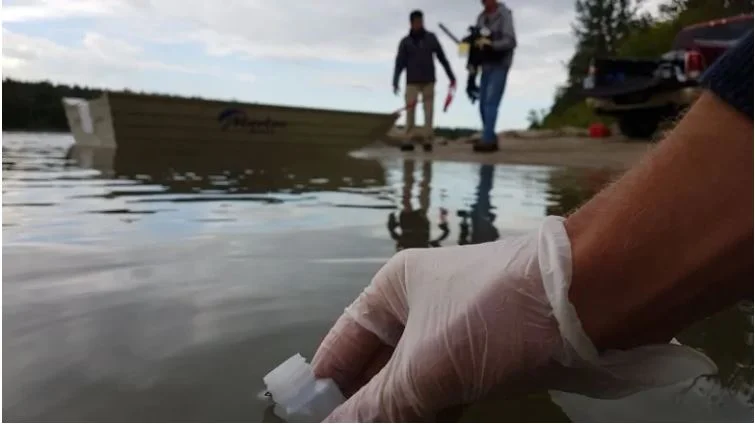The water temperatures are getting colder, and for sea turtles, this could be bad news. If a sea turtle ends up in water that's 10 C or below, it could become cold-stunned, which is similar to hypothermia but for turtles, according to April Nason, the education and outreach co-ordinator for the Canadian Sea Turtle Network in Nova Scotia.
Lachine environmental group wants to reduce microplastics entering our waters
Textiles are the largest known source of microplastic pollution in the world's oceans — making up around 35 percent of microfibres released into the waters. Every time you wash your clothes, tiny fibres are released into the waste water. These fibres then travel into lakes, oceans and marine organisms. And while most of it becomes fragmented from wastewater treatments, a large volume still escapes and the long term effects of that are still largely unknown.
Opinion: Time to address Saskatchewan’s water quality woes
With everyone back to work and school, the water quality in Saskatchewan lakes and rivers may not be front of mind for many right now. But World Water Monitoring Day (WWMD) makes this the perfect time to think about, and take action for, all those freshwater places that are near and dear to us. WWMD is an international outreach program held annually between Sept. 18 and Oct. 18. By engaging communities in monitoring the condition of local water bodies, it helps increase awareness of the importance of good water quality to life, livelihoods and personal enjoyment.
Ontario investing in Kawartha Lakes water quality project
The Ontario government is investing $44,500 towards a project to improve water quality in Kawartha Lakes. On Wednesday, July 21st, MPP Laurie Scott announced, in a press release, the government would be providing these funds towards a Kawartha Conservation project. According to the press release, the project is intended to enhance “nearshore water quality and aquatic plant management in the Kawartha Lakes, Lake Ontario Drainage Basin.”
Portable water testing kits can be used for 'citizen science' across Canada
Over the last few years, WWF Canada conducted research that showed information on the health of Canada's water was lacking across the country. "We found that 65 per cent of our watersheds didn't have enough data available to understand the health of them," said Heather Crochetiere, senior fresh water specialist at WWF Canada.
'Citizen scientists' being trained to monitor water on Manitoulin Island
A non-profit group is working with a First Nation community in northeastern Ontario to become citizen scientists. Swim Drink Fish, with funding from Environment Canada, is continuing to set up citizen science water monitoring hubs. The group is now working with Zhiibaahaasing First Nation, located at the western end of Manitoulin Island on the northshore of Lake Huron. "We're trying to build a community of people around the Great Lakes who are working for swimmable, drinkable and fishable water," Mark Mattson, president of Swim Drink Fish said.







